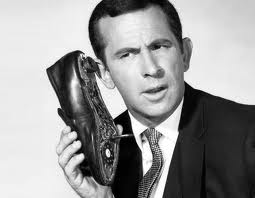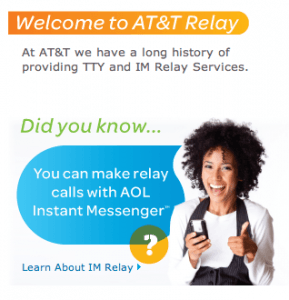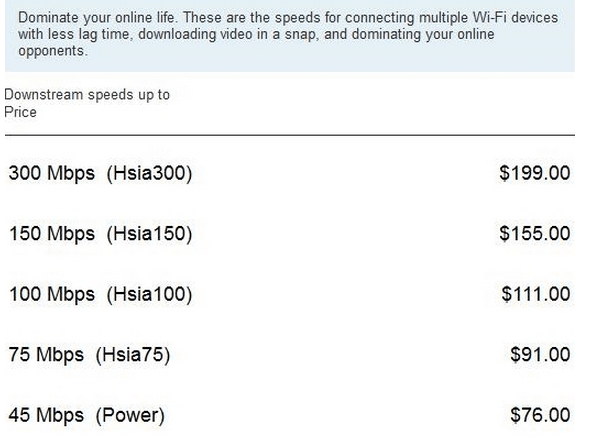 The taxpayer-funded Central Intelligence Agency is paying AT&T more than $10 million annually for its “voluntary help” with counter-terrorism investigations in return for open access to the company’s vast trove of calling records, including international calls placed by Americans.
The taxpayer-funded Central Intelligence Agency is paying AT&T more than $10 million annually for its “voluntary help” with counter-terrorism investigations in return for open access to the company’s vast trove of calling records, including international calls placed by Americans.
No court order or subpoena was required to start the partnership, according to an article in today’s New York Times. The CIA provides AT&T with the telephone numbers of overseas terrorism suspects and in return the phone company provides records of calling activity, possibly identifying associates.
With interconnection agreements between telephone companies standard operating procedure, AT&T has been able to collect calling records from any foreign or domestic calls that pass through its equipment, even if neither party is an AT&T customer.
Despite AT&T’s claims of robust privacy protection, Americans are not promised anonymity or privacy when requests arrive from law enforcement officials. But only recently have phone companies voluntarily provided calling data that in earlier years would have required a court order to divulge.
 By law, the CIA is specifically prohibited from collecting intelligence on the domestic activities of U.S. citizens, so the agency imposes its own safeguards on the surveillance program. AT&T provides the agency with calling times, duration of the calls, and the phone numbers of both the originating and called party. It does not divulge the contents of the calls. The CIA is granted full access to AT&T logs involving foreign to foreign calls, but if either party is in the United States, AT&T will mask certain digits of the U.S. telephone number. If more information is required, the CIA will refer the matter to the Federal Bureau of Investigation (FBI), which has jurisdiction the CIA lacks. The FBI can then subpoena AT&T directly for the missing details.
By law, the CIA is specifically prohibited from collecting intelligence on the domestic activities of U.S. citizens, so the agency imposes its own safeguards on the surveillance program. AT&T provides the agency with calling times, duration of the calls, and the phone numbers of both the originating and called party. It does not divulge the contents of the calls. The CIA is granted full access to AT&T logs involving foreign to foreign calls, but if either party is in the United States, AT&T will mask certain digits of the U.S. telephone number. If more information is required, the CIA will refer the matter to the Federal Bureau of Investigation (FBI), which has jurisdiction the CIA lacks. The FBI can then subpoena AT&T directly for the missing details.
AT&T would not comment on national security matters, but the newspaper reminded readers AT&T has a history of making life very easy for government surveillance programs:
AT&T has a history of working with the government. It helped facilitate the Bush administration’s warrantless surveillance program by allowing the N.S.A. to install secret equipment in its phone and Internet switching facilities, according to an account by a former AT&T technician made public in a lawsuit.
It was also one of three phone companies that embedded employees from 2003 to around 2007 in an F.B.I. facility, where they used company databases to provide quick analysis of call records. The embedding was shut down amid criticism by the Justice Department’s inspector general that officers were obtaining Americans’ call data without issuing subpoenas.
And, for at least the past six years, AT&T has embedded its employees in federally funded drug investigation offices to analyze call records, in response to subpoenas, to track drug dealers who switch phones. A briefing document for that program said AT&T had records of calls handled by its switches — including “a tremendous amount of international numbers that place calls through or roam on the AT&T network” — dating back to 1987, and described efforts to keep its existence “under the radar.”


 Subscribe
Subscribe AT&T has agreed to pay an extra $3.5 million in addition to the $18.25 million already paid to settle Justice Department claims the company knowingly overbilled the government for reimbursement of fraudulent international relay calls usually made by scammers originating from countries like Nigeria.
AT&T has agreed to pay an extra $3.5 million in addition to the $18.25 million already paid to settle Justice Department claims the company knowingly overbilled the government for reimbursement of fraudulent international relay calls usually made by scammers originating from countries like Nigeria. AT&T and Verizon are among the biggest tech company spenders in Washington, paying millions every quarter to lobby federal and state lawmakers on how they can make life easier for the telecom giants.
AT&T and Verizon are among the biggest tech company spenders in Washington, paying millions every quarter to lobby federal and state lawmakers on how they can make life easier for the telecom giants. AT&T has expanded its TV Everywhere service to cover more devices and networks, adding more than 20 channels available for streaming outside of the home.
AT&T has expanded its TV Everywhere service to cover more devices and networks, adding more than 20 channels available for streaming outside of the home.

